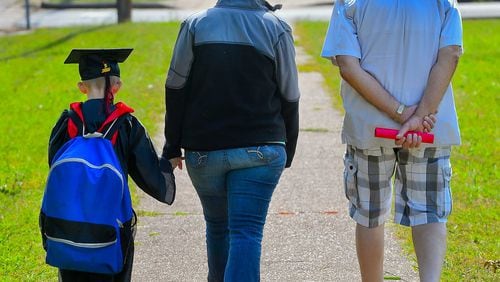A review of the research on “redshirting” young children whose summer birthdays fall close to the start of kindergarten suggests delaying them a year does not pay off academically in the long run.
“Certainly, for some kids redshirting has been helpful, but, by and large, it is probably not worth it for many kids,” said Diane Whitmore Schanzenbach, a professor of education and social policy at Northwestern University and a research associate at the National Bureau of Economic Research.
Yes, there may be differences in student ability and maturity in kindergarten based on the age of the child, said Schanzenbach. But what parents of the youngest students have to remember is their kids will typically catch up. “These differences, which may seem so big at the beginning of kindergarten, dissipate,” she said.
Many parents debate when to start school for children born in the summer, which is close to the kindergarten eligibility cutoff date of Sept. 1.
Using data from the Department of Education’s Early Childhood Longitudinal Study, Schanzenbach found parents of boys are more likely to redshirt. Among parents of the 2010 kindergarten class, 6.2 percent delayed their child’s school start by a year. Breaking it down by gender, 7.2 percent of parents of boys redshirted, compared to 5.2 percent of parents of girls.
And it’s more common among well educated parents. When you look at boys with college-educated parents, one in five was redshirted, a rate four times that of summer-born boys with high-school educated parents.
Among the issues related to redshirting: Being older may be an advantage in kindergarten but become a problem in third or fourth grade when the older student may be bored. The presumed age advantage disappears by high school. There is evidence younger kids actually benefit from being in class with older kids. And holding children out a year may mean another year of preschool costs for families.
To read more about the evidence around redshirting and academic performance, go to the AJC Get Schooled blog.







